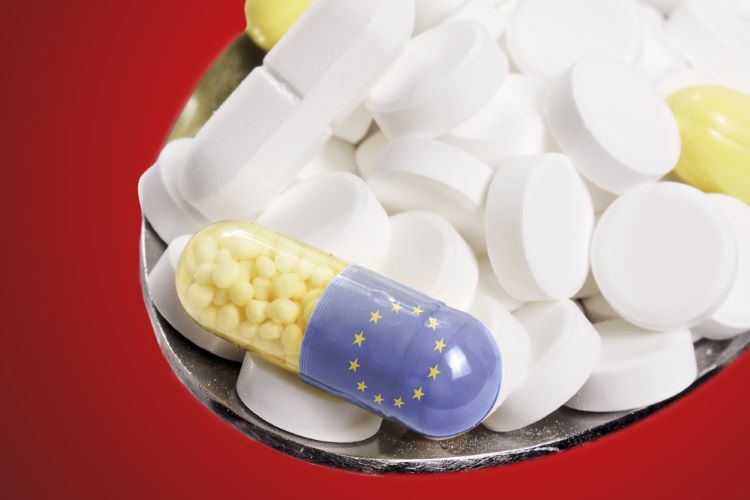Medicines for Europe calls for simpler SPC manufacturing waiver
Posted: 29 January 2024 | Catherine Eckford (European Pharmaceutical Review) | No comments yet
To ensure timely market entry of generics and biosimilars in the EU, the Supplementary Protection Certificate (SPC) Manufacturing Waiver must be clearer, asserts Medicines for Europe.


According to Medicines for Europe, the Munich District Court’s Supplementary Protection Certificate (SPC) manufacturing waiver, issued in Germany in October 2023, is “in conflict” with the objectives of the waiver.
The organisation and its members are “strongly concerned” by the court’s first judgement of the waiver.
SPC manufacturing waiver
Aims and challenges
First enacted in 2019, the goal of the SPC manufacturing waiver is to enable the manufacture of medicines, under certain conditions, during the up-to-five-year extension of the market protection of certain patented medicinal products in the EU, Medicines for Europe summarised.
According to Medicines for Europe, the waiver aims to “preserve the competitiveness of the European generic and biosimilar medicines industry, stimulate investments in medicines manufacturing in Europe and avoid delocalisation in the medicines industry.”
[The Supplementary Protection Certificate (SPC) manufacturing waiver] aims to “preserve the competitiveness of the European generic and biosimilar medicines industry, stimulate investments in medicines manufacturing in Europe and avoid delocalisation in the medicines industry.”
The group deemed that the Munich District Court’s judgement held an “inordinately restrictive interpretation of the SPC manufacturing waiver, which cannot be derived from the letter of the law.” As such, Medicines for Europe highlighted that it “contradicts the intention of the amendments” introduced during its prosecution until its final approval.
Based on the court’s judgement, the SPC manufacturing waiver for export would require “notification of a marketing authorisation (MA) number – even if no MA number is publicly available – or the disclosure of confidential information about future country of submission, deducing those requirements from an alleged need to ensure that no intellectual property rights should exist in the foreign country of export”, Medicines for Europe confirmed.
This judgement shows that the SPC manufacturing waiver legislation is currently drafted to allow SPC holders to misinterpret the language before Courts “to the detriment of EU-based producers, and to the benefit of producers established out of Europe.” This threatens investments in manufacturing, according to Medicines for Europe.
Medicine for Europe also noted that the reform of the SPC regulation proposed by the European Commission to introduce a central granting procedure, “lacks some of the original recitals of the SPC Waiver legislation, with further potential confusion.”
Manufacturing in the EU
Additionally, the judgment further suggests that for manufacturing in the EU and export to a third country to be permissible, a granted marketing authorisation in such third country is required. The judgement upholds that “the Regulation is not intended to put manufacturers within the Union on a completely equal footing with manufacturers in third countries” (unofficial translation), Medicines for Europe explained.
This is “fundamentally wrong and is a complete misunderstanding of which activities require a marketing authorisation under pharmaceutical regulatory laws,” the organisation stated.
Medicines for Europe upheld that “although it is a first-instance judgment in an expedited procedure, issued in a single – but, for the pharmaceutical industry, significant – EU country, it will certainly be used by SPC holders to further threaten existing and future users of the SPC Manufacturing Waiver with lawsuits, or to sue them”.
The group acknowledged: “this is a practice already reported by users of SPC Manufacturing Waiver in the Medicines for Europe 2023 Industry Report, adding that it distorts the use of the waiver.
[Simplification and clarification] of the legislation… [would] ensure timely entry of generics and biosimilars [in the EU market]”
In its 2023 Industry Report, Medicines for Europe proposed for simplification and clarification of the legislation.
This action would achieve the goal of the legislation: making the EU attractive for developers and manufacturers of pharmaceuticals, strengthen security of supply and address critical medicine shortages, and ensure timely entry of generics and biosimilars, the organisation highlighted. To ensure this occurs, it called the EU to include these proposals “now” in the general overhaul of SPC legislation.
Related topics
Big Pharma, Biologics, Biopharmaceuticals, Drug Development, Drug Markets, Industry Insight, Manufacturing, Regulation & Legislation, Research & Development (R&D), Therapeutics









